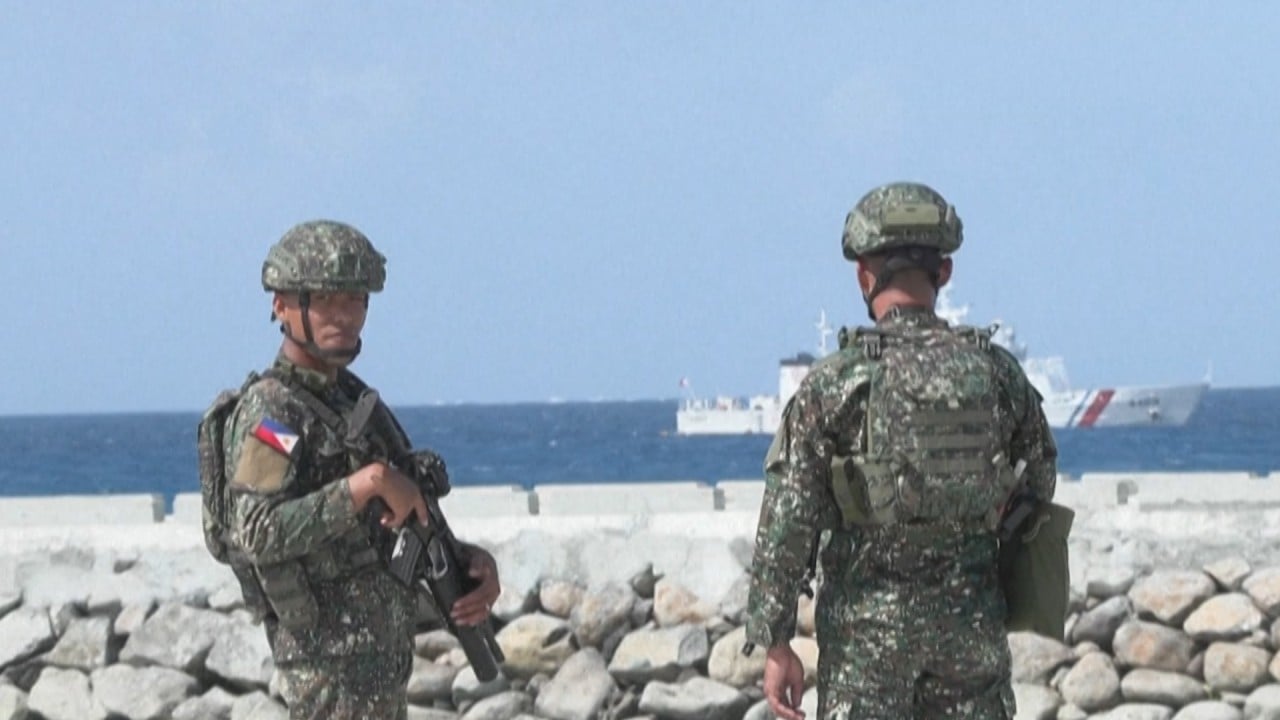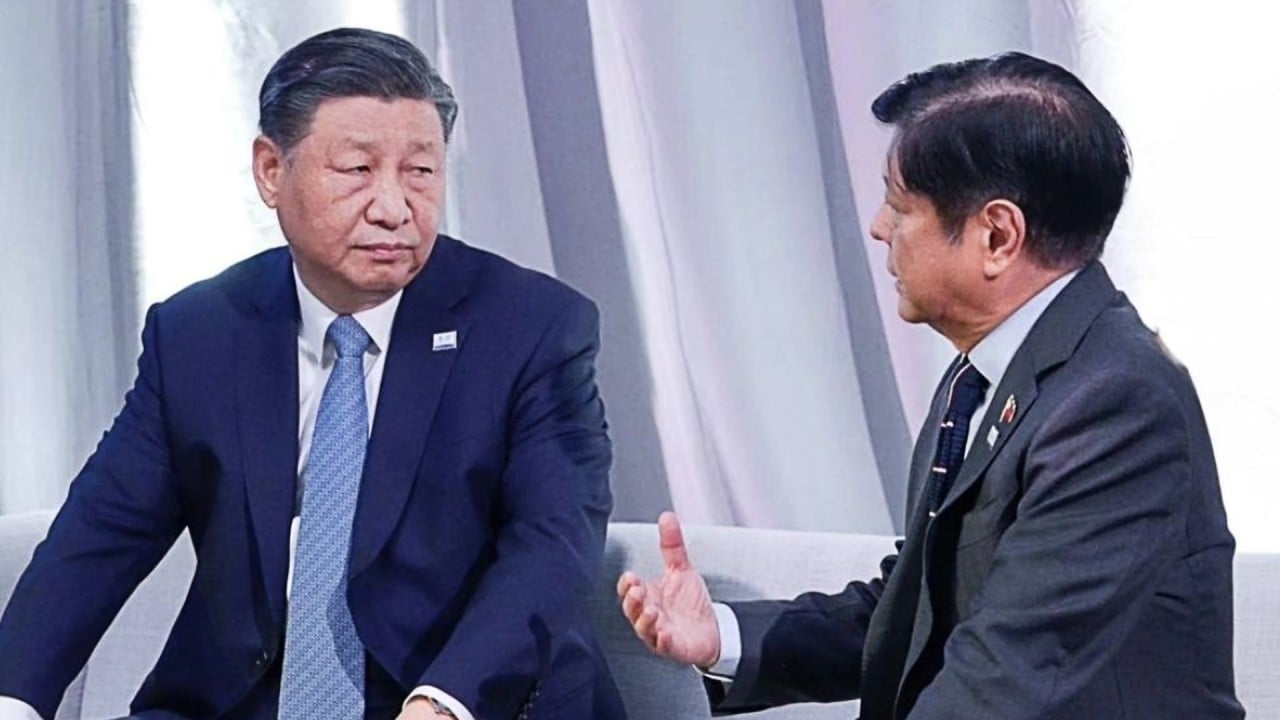“But if their cooperation in, for example, the use of military bases, joint exercises, information gathering and logistical supplies infringe the core and important interests of China such as Taiwan, the South China Sea and …[China’s] national security, then not only will China-Philippines relations bear the brunt, and the peace and stability of the South China Sea become untenable, the Philippines’ own interests will also be undermined.”
Beijing and Manila have accused each other of provocation.
Will more assertive Philippine approach to South China Sea pay off?
Will more assertive Philippine approach to South China Sea pay off?
During the meeting on Wednesday, Wu, the former president of the government-backed National Institute for South China Sea Studies, said US support was partly to blame for recent “risky behaviours” by the Philippines.
“[The US support was also] linked to the underestimation made by the Philippines’ strategic community and policymakers of China’s likely resolve and ability to counterbalance it,” he added.
Beijing has long labelled the US as an “external force” escalating tensions in the strategically important waterway that connects Northeast and Southeast Asia, and the Pacific and the Indian Ocean.
It was frustrated when Manila announced in April that it would allow US troops access to four more military bases, including one about 400km (250 miles) from Taiwan and another one that is only 200km from a Chinese base on Mischief Reef in the Spratly Islands.
In another move that may upset Beijing, Japan, another US treaty ally, announced on Wednesday that it had formally handed over an air surveillance radar system to the Philippines.
The system can detect approaching fighter jets and missiles and help bolster the Southeast Asian country’s defences, according to Philippine Defence Secretary Gilberto Teodoro.
Wu said that a stronger US-Philippine alliance would bring more uncertainties to Manila’s ties with Beijing.
This is especially so given the US has steadily increased its military presence around China, including sailing of naval vessels and surveillance planes in the South China Sea and through the Taiwan Strait, according to Wu.
Marcos has said the US cannot use its military bases for offensives against China but Wu warned that such situations would be “out of the Philippines’ control”.
“A likely consequence is that the Philippines not only becomes a casualty of the US-China military game in the South China Sea, but also becomes militarily involved in the US-China conflict in the Taiwan Strait,” Wu said.
The two sides should find a way out of the “South China Sea dilemma” to avoid spillover damage on bilateral cooperation, Wu said.
And the only way to do that, according to Wu, is to set aside a ruling from a tribunal in The Hague that dismissed much of Beijing’s claim to the disputed waters.
“The only way is to set aside the South China Sea tribunal ruling and not take it as an additional condition when dealing with bilateral relations and the South China Sea disputes,” he said.
“Otherwise … the South China Sea dilemma will never be resolved and the comprehensive cooperation in trade, culture … tourism and investment would inevitably be interrupted.”
Beijing flexes muscles in South China Sea as Manila puts it on the defensive
Beijing flexes muscles in South China Sea as Manila puts it on the defensive
He also said the two sides should resume the hotline between their respective coastguards, which started in January but was suspended in August after Philippine Coast Guard spokesman Jay Tarriela complained that the line “never really gave us a positive chance to talk”.
Wu said the hotlines as well as the joint committee between the two coastguards since 2017 had “played some role” in managing disputes at the sea, including in the waters around the Scarborough Shoal, the Second Thomas Shoal and Sand Cay, a China-controlled high-tide sandbar located about two nautical miles from the Philippines’ Pagasa Island.
“There is no reason for us to set aside these effective mechanisms … and allow conflicts to widen, conflicts to escalate and crises to spiral out of control, and watch relations between our two countries reach the point of no return,” Wu said.



